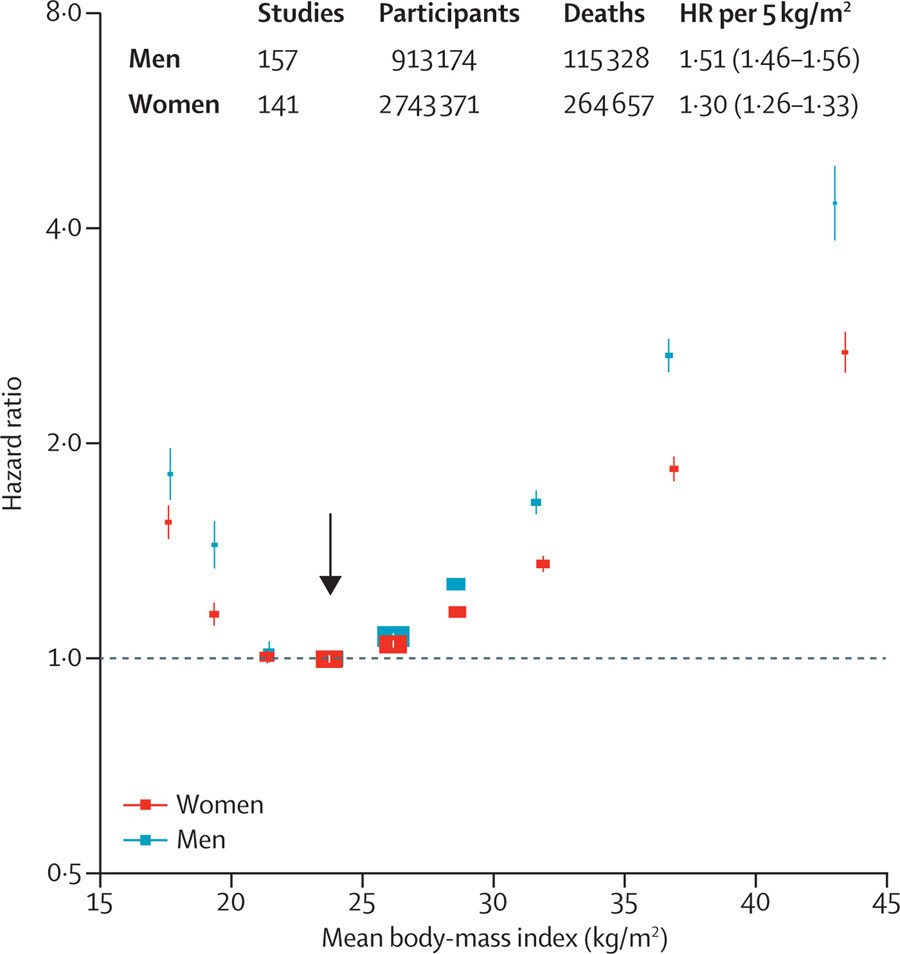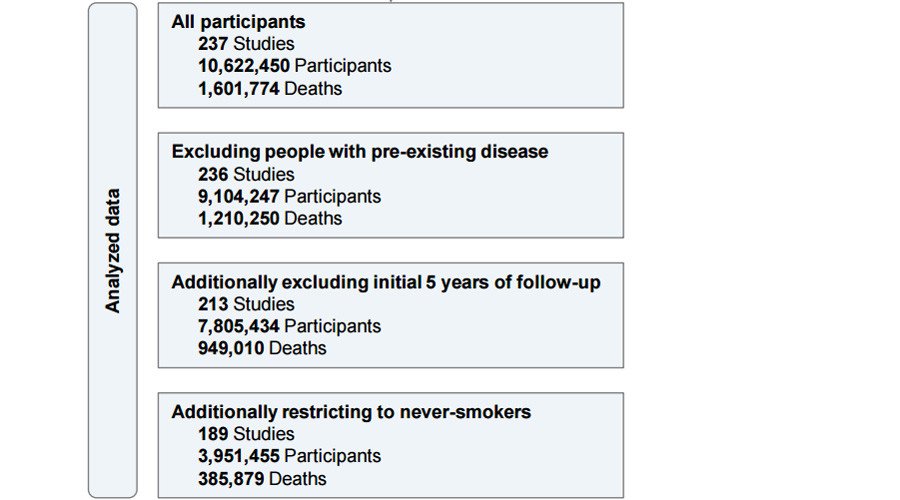Study of 4 million people confirms – being fat is a killer, particularly if you are a man

A huge meta-study analyzing the impact of obesity on 3.95 million people, who were studied in 189 separate research programs all over the world, has unequivocally shown that overweight people die younger even if they have no other obvious vices.
“On average, overweight people lose about one year of life expectancy, and moderately obese people lose about three years of life expectancy,” said Emanuele Di Angelantonio from Cambridge University, the lead author of the paper, which was just published in The Lancet.

The credible previous studies selected by the authors examined 10.6 million people on four continents, but researchers whittled down the number of participants, to separate only adults, who did not smoke, have chronic diagnosed diseases, or die within five years of the start of study.
“To obtain an unbiased relationship between Body Mass Index (BMI) and mortality, it is essential to analyze individuals who never smoked and had no existing chronic diseases at the start of the study,” said Frank Hu, of Harvard Chan, another lead author.
With nearly 4 million people eligible, this is the biggest ever such study – and the results were clear.
In North America, men within the normal BMI range have a 19 percent chance of dying between 35 and 69, in what are termed “premature deaths.” For moderately obese men, the figure is 29.5 percent. For women, the contrast is less stark, but still noticeable – from 11 percent to 14.6 percent.
“We also found that men who were obese were at much higher risk of premature death than obese women. This is consistent with previous observations that obese men have greater insulin resistance, liver fat levels, and diabetes risk than women,” said Di Angelantonio.

The authors admit that across such a huge range of differently formatted studies, it was not possible to account for all factors between the participants, such as their exercise levels, diet, access to medical care and genetics, which could also have an impact. BMI is also an imperfect index, failing to account for what constitutes different normal weights for men and women, as well as people of the same sex with different body make-ups.
But whatever the underlying causes and nuances, the correlation is there.
The WHO says that 1.3 billion people in the world are overweight and 600 million more obese. According to BMI, a 6-foot person would have to weigh over 82 kg to be considered overweight, and over 100 kg to be counted as obese.
“Obesity is second only to smoking as a cause of premature death in Europe and North America,” said co-author Professor Sir Richard Peto, from Oxford University “Smoking causes about a quarter of all premature deaths in Europe and in North America, and smokers can halve their risk of premature death by stopping. But, overweight and obesity now cause about 1 in 7 of all premature deaths in Europe and 1 in 5 of all premature deaths in North America.”
The meta-study appears to have refuted a growing hypothesis that mild excess weight may have a protective function, though it did appear that those below normal BMI also suffered from greater mortality. This could be explained by malnutrition or other conditions, and in terms of overall numbers, the problem was not as severe, as that presented by obesity.














